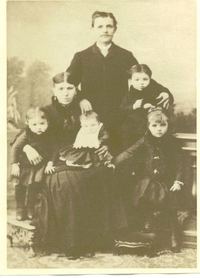Tracing your Family Clan
About Scottish Clans

Scotland is famous for its unique clan system which can help you a lot in research of your Scottish roots. Scottish clans enter history in the 12th and 13th century in the Highlands but most of them trace their origin into the Early Middle Ages. Unfortunately, they often link their progenitors to mythological or semi-mythological individuals, while the lack of historical sources makes their claims impossible to verify.
The clan system that developed in the 12th and 13th century existed until the Jacobite Rising of 1745. After the rebellion was crushed by George II, the clan system collapsed but it was revived in the early 19th century. At the same time, tartan and kilt become an important part of Scottish national identity.
In contrary to the common belief, members of a clan aren’t necessarily related by blood. In fact, many individuals and families joined a clan to gain protection. When they did, they adopted the name of the clan as their surname.
Your (and Your Ancestors’) Scottish Surname
If your ancestors are Scottish, they were highly likely members of one of the clans. Since family name and clan name are one and the same, you will be able to find your clan through your or your ancestors’ surname. If possible, try to acquire the original surname, and find out in which part of Scotland your ancestors lived and when. Keep in mind, however, that many surnames changed over time and that your current surname may differ from the original one. But since the root letters remain the same, you shouldn’t have any problems determining your original Scottish surname.
Besides helping you trace your family clan, your Scottish surname also reveals a lot about your family history. Depending on where in Scotland your ancestors come from and at which time they lived there, your surname may reveal the progenitor’s name. For example Allison means the son of Alexander. But if starts with Mac or Mc such as McAllison, it means it is of Gaelic origin. Your surname may also be derived from occupation, name of a place or nickname such as Cameron for instance which in Gaelic means crooked nose.
Finding Your Family Clan
Given that family and clan names are identical, finding your family clan won’t take much time or effort. Just type your family name into your search engine and add clan, and you will find lots of resources where you can learn more about your family clan’s history, origin and current status.